On April 23, the Brookings Institution convened a high-level conversation discussing the urgent and complex debt challenges facing developing countries today. Hosted by the Center for Sustainable Development on the sidelines of the 2025 Spring Meetings of the World Bank Group and International Monetary Fund, the event brought together members of the newly established United Nations Expert Group on Debt and other senior economic policy leaders to assess the deteriorating external environment for sovereign borrowers and outline actionable paths forward.
The event featured Homi Kharas (Senior Fellow, Brookings), Mahmoud Mohieldin (Chair, U.N. Expert Group on Debt; Nonresident Senior Fellow, Brookings), Rebeca Grynspan (Secretary General, UNCTAD), Trevor Manuel (Co-Chair, U.N. Expert Group on Debt), Paolo Gentiloni (Co-Chair, U.N. Expert Group on Debt; Nonresident Distinguished Fellow, Brookings), Vera Songwe (Founder, Liquidity and Sustainability Facility; Nonresident Senior Fellow, Brookings), and Indermit Gill (Chief Economist, World Bank; Nonresident Senior Fellow, Brookings). They explored concrete, politically feasible reforms to address rising debt service burdens, limited fiscal space, and the growing tension between short-term obligations and long-term development goals.
Framing the debt challenge
Senior Fellow Homi Kharas opened the event by pointing to the complex and uneven landscape of debt challenges across emerging markets and developing economies. He emphasized the mix of worsening conditions: peaking debt service obligations, slashed aid, rising interest rates, and slowed growth of GDP and exports. “There is so much variation in the conditions and situations of developing countries,” he noted, “that it’s very difficult to talk about the developing country debt servicing problem.” He underscored the role of debt reprofiling as a key strategy and raised the question of whether it’s possible to achieve debt relief while also enabling increased investment and lower capital costs.
Moderator Mahmoud Mohieldin built on this framing and encouraged panelists to engage with the question of whether the current moment represents a mere problem, a crisis, or a systemic disaster.
Defaulting on development
Rebeca Grynspan warned that many countries are prioritizing debt payments over critical social investments. While formal defaults remain rare, she argued that the real crisis is a silent one—”defaulting on development”—as countries divert funds from education and health.
She highlighted regional disparities and called for rebalancing creditor and debtor responsibilities for ensuring sustainable debt, especially as 3.3 billion people live in countries spending more on debt than human capital.
Debt as a development challenge
Indermit Gill outlined three ways debt impairs development: It reduces fiscal space, crowds out private investment, and creates uncertainty. He was encouraged by the recent disbursement of real debt relief under the G20’s Common Framework for Debt Treatments beyond the DSSI (Common Framework) and hoped that now such agreements could be more rapidly concluded. He called for (i) enhanced debt transparency, especially regarding domestic liabilities, (ii) updating debt sustainability frameworks to identify liquidity and solvency issues, and (iii) appropriate restructuring and reprofiling depending on the assessment of debt sustainability.
Beyond cyclicality: A systemic moment
Trevor Manuel stressed that current debt levels are undermining long-term development by displacing spending on health and education. He characterized the crisis as structural and systemic, not temporary, and emphasized the need to improve fiscal governance and build public finance vehicles that serve quality of life. He argued that addressing debt requires acknowledging structural inefficiencies, improving fiscal transparency, and reforming the Common Framework to make it more responsive and efficient.
A borrowers’ club?
Paolo Gentiloni emphasized the urgency of reforming the Common Framework and building borrower coalitions. The idea of a “Borrowers’ Club” or “South Club”—a space for developing countries to share knowledge and assert agency within global financial architecture resonated on the panel. While acknowledging political constraints in Europe, Gentiloni stressed also that paradoxically, the current moment could present an opportunity for reform.
He noted that despite pressures from the far right, there is renewed willingness within the EU to re-engage with the Global South, viewing it as both a necessity and a strategic opportunity. Reflecting on the stigma faced by Southern European countries during the Eurozone crisis, he encouraged the creation of cooperative platforms (even if informally labeled) as potentially productive and necessary.
Building on Kharas’s framing, Mohieldin added that such a club could encompass a broad spectrum of debt scenarios.
Not a credit rating issue: Role of investment and liquidity
Vera Songwe emphasized that debt should not be viewed inherently as a negative force. Rather, the cost and use of debt are critical. She pointed out that costs can depend on factors beyond just the creditworthiness rating. She discussed liquidity support mechanisms, pre-committed disbursements, and upfront financing for countries facing liquidity challenges. Citing Barbados’ successful restructuring and rapid recovery, Songwe emphasized that default can be a strategic choice when paired with credible reform. The result: improved ratings and access to capital. Songwe emphasized Côte d’Ivoire as a model of successful, proactive liquidity support. She pointed to the World Bank’s recent liquidity program there as an example of how credible reprofiling can prevent deeper crises and enable growth. The lesson was clear: The tools exist, and what’s needed now is the will to pursue swift, scalable, and sound solutions.
Q&A highlights: Responsibility, G20, FX risks
Audience members raised concerns about lender responsibility and the bias in infrastructure finance. Mohieldin agreed that principles of responsible borrowing and lending should be revived, with the U.N. exploring this through upcoming Financing for Development platforms. Asked about the G20, Manuel urged continued U.S. engagement to ensure the effectiveness of multilateral debt mechanisms like the Common Framework. A Cameroonian entrepreneur voiced concerns about foreign exchange volatility from borrowing. Songwe recommended sovereign credit improvement and local currency tools to reduce vulnerability.
Noting market reactions to uncertainty, even in the U.S., the panel observed that the advice long given to low-income countries about transparency and stability may apply universally.
From crisis to coordination
As the discussion concluded, the moderator returned the panel to the central thread of actions that are technically sound and politically feasible. The following themes emerged:
- Reprofiling—perhaps in the style of the Debt Service Suspension Initiative (DSSI)—emerged as a pragmatic entry point. Panelists highlighted how such solutions can offer immediate fiscal relief, especially for countries facing liquidity pressures, while unlocking space for essential investments in resilience, adaptation, health, education, and human capital. The conversation identified successful precedents, such as Côte d’Ivoire, as proof that when well-managed credible debt-relief efforts are paired early on with reform and investment, countries can avert deeper crises and even enhance sustainable development.
- The Common Framework is developing clearer processes that should permit more rapid net present value debt reductions. The prior example of Barbados suggests that countries can return to capital markets relatively rapidly even after a default under the right circumstances.
- A “Borrowers’ Club” would help improve the architecture of global finance. It can support the sharing of experience across countries, particularly on complex structures such as value recovery clauses that have been sticking points in current debt negotiations.
- An understanding of responsible principles on how debt is used, managed, governed, and reported can help restore trust between borrowers and lenders—and position debt as a lever for inclusive growth and prosperity.
- Understanding how to drive down the cost of borrowing to below the level of growth remains central to debt dynamics.
- Homi Kharas on the uneven landscape of debt challenges
- Rebeca Grynspan on the silent crisis of "defaulting on development"
- Indermit Gill on debt as a development challenge
- Paolo Gentiloni on a "Borrowers' Club"
- Vera Songwe on why debt should not be viewed inherently as a negative force
- Trevor Manuel on the importance of U.S. engagement to ensure the effectiveness of multilateral debt mechanisms
- Mahmoud Mohieldin, chair of the U.N. expert group on Debt, moderated the panel
The Brookings Institution is committed to quality, independence, and impact.
We are supported by a diverse array of funders. In line with our values and policies, each Brookings publication represents the sole views of its author(s).
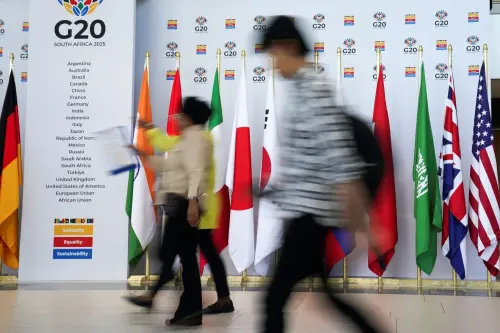


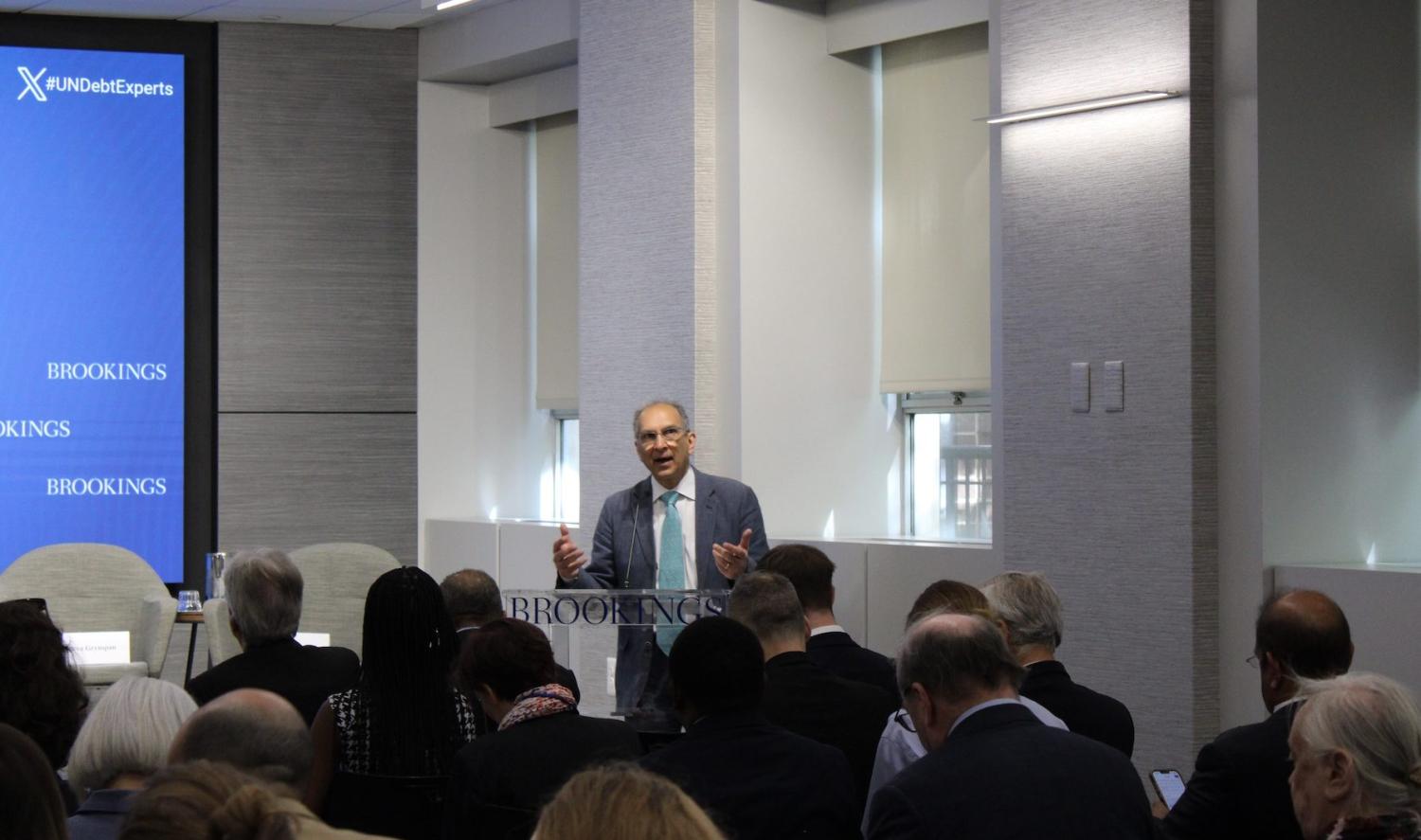

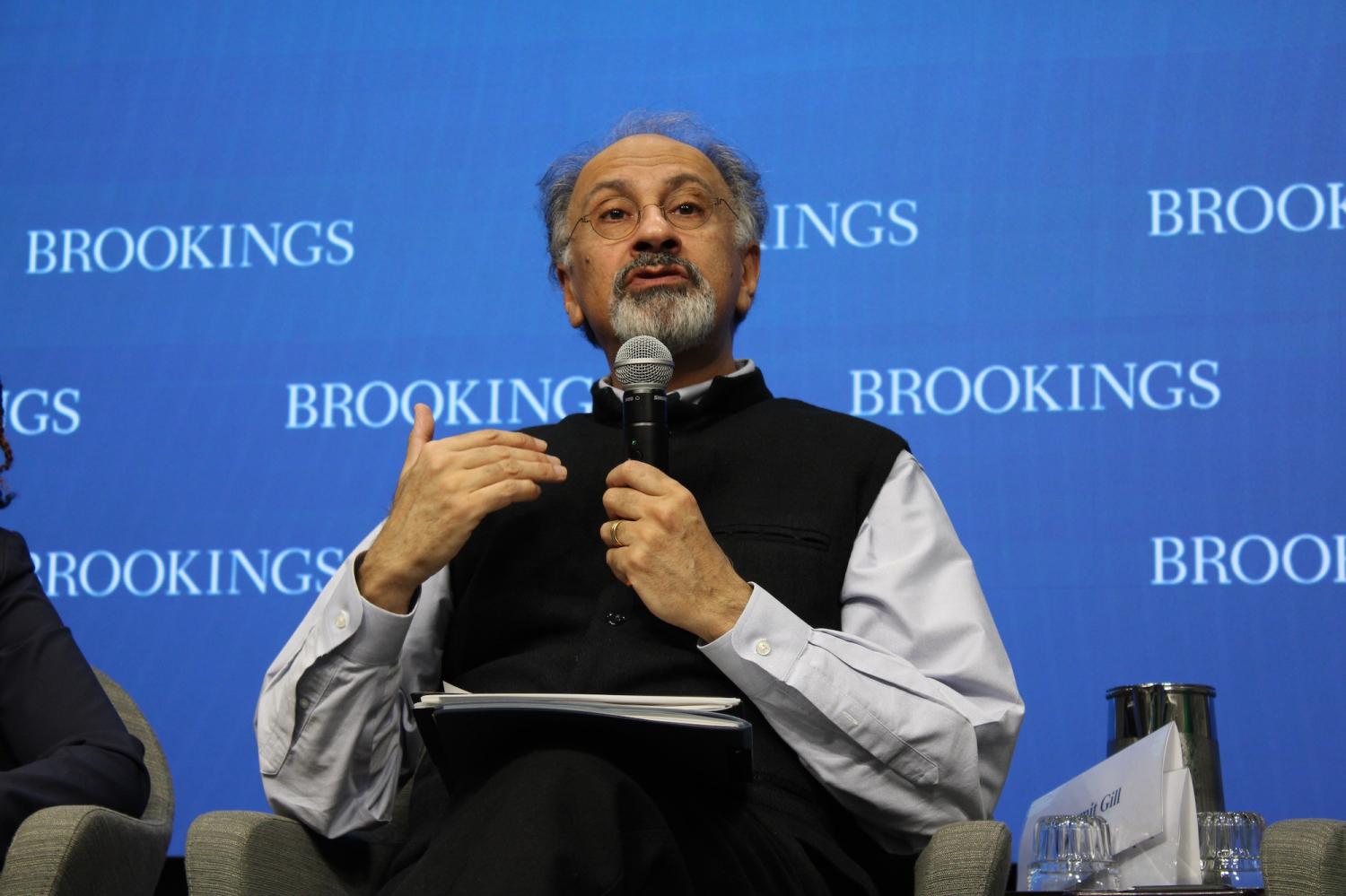

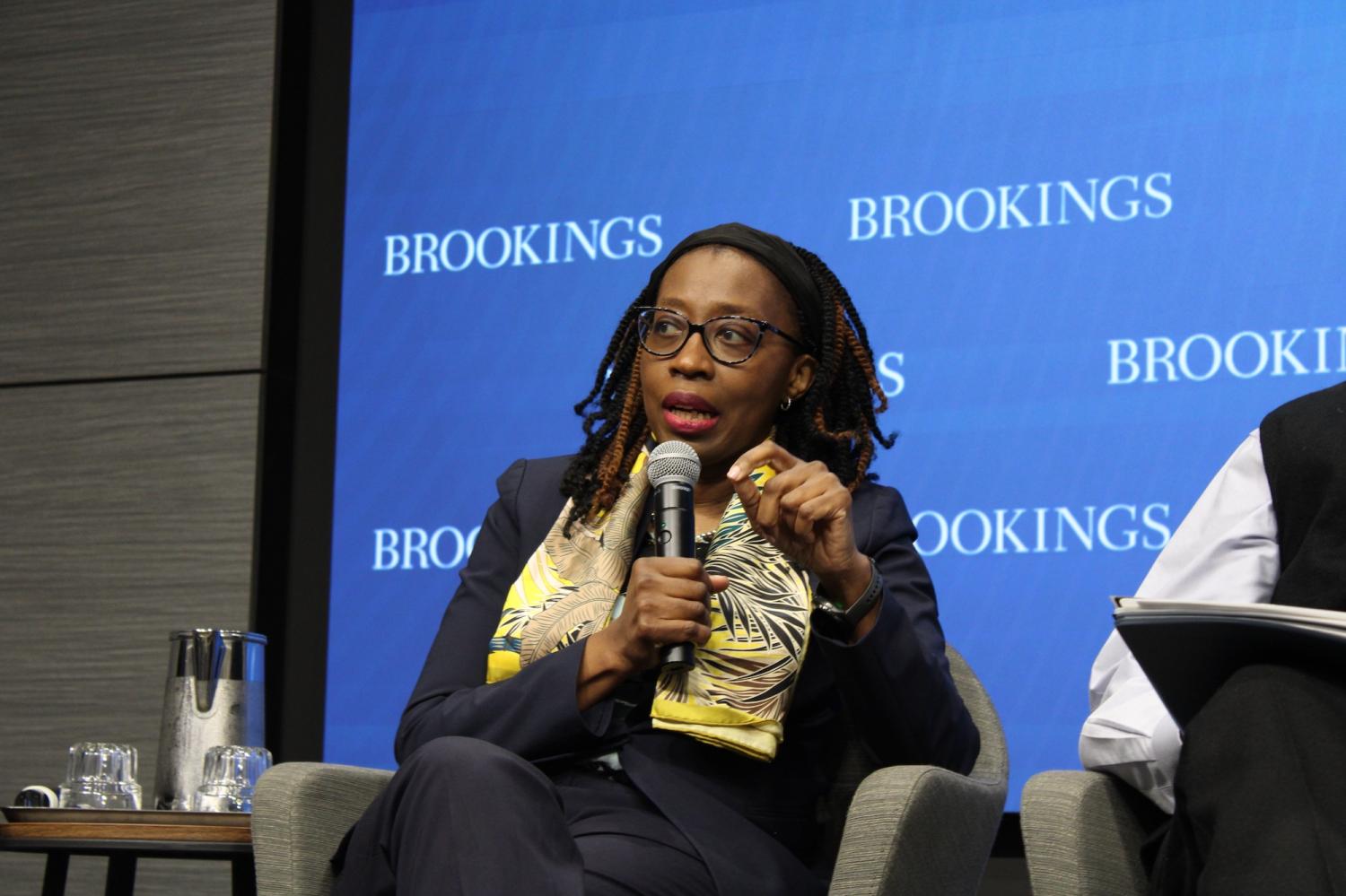
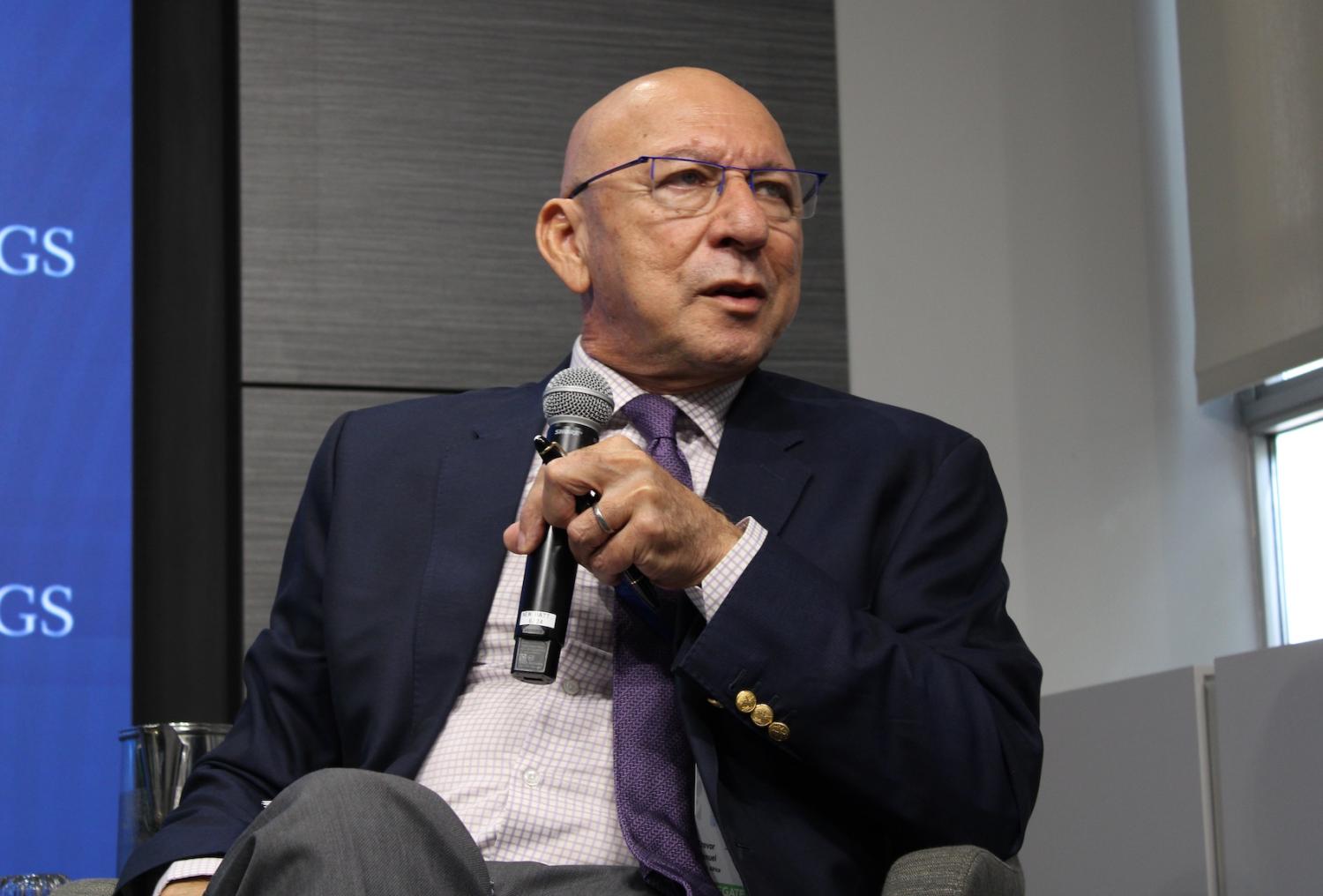
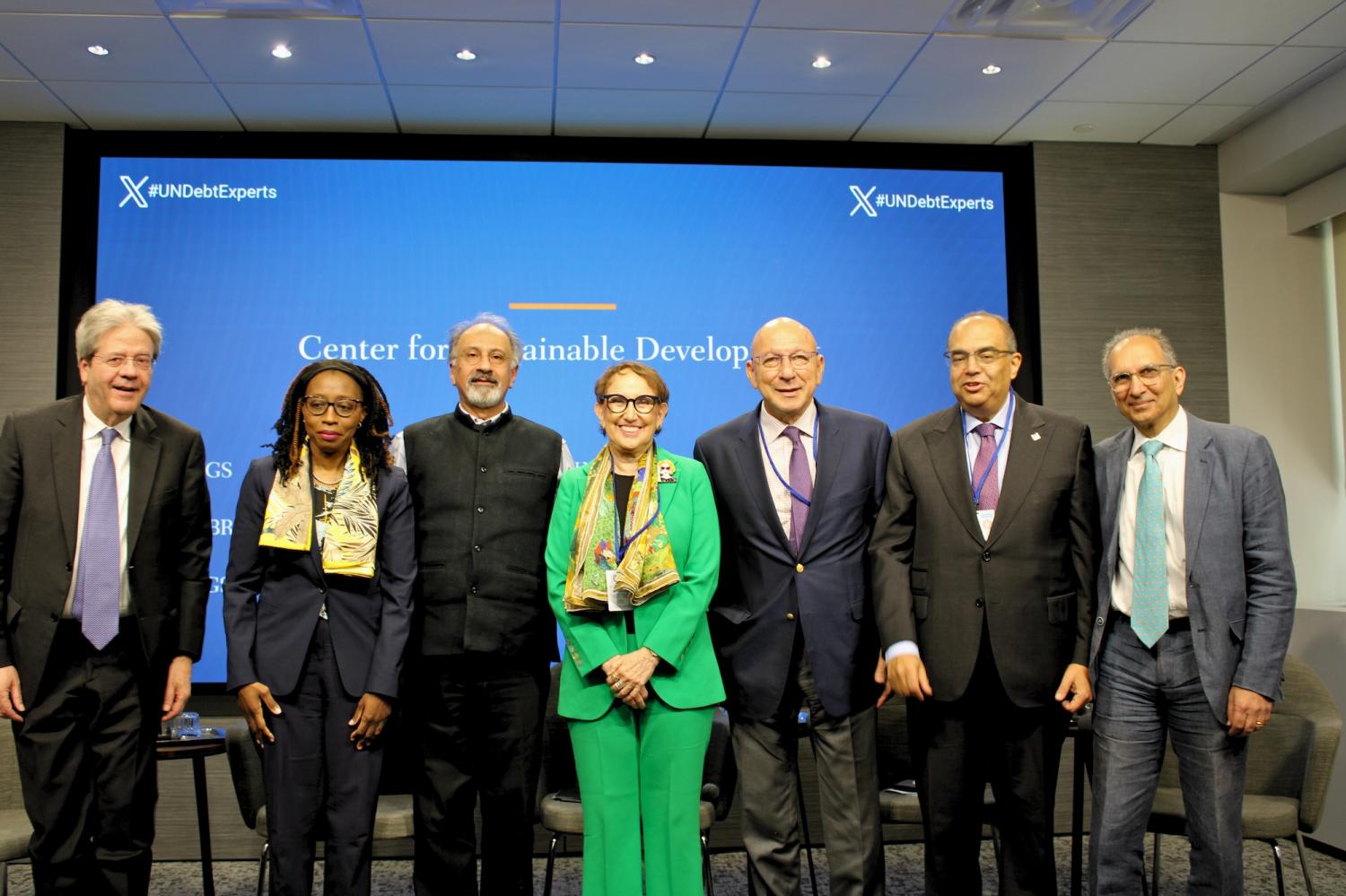


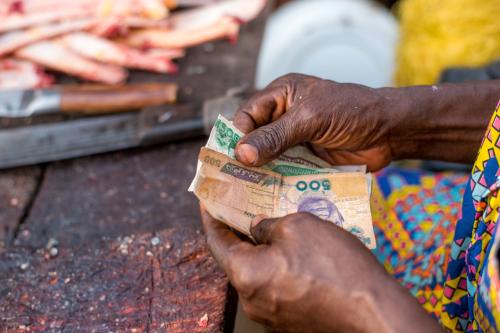
Commentary
Key takeaways from the Brookings conversation featuring the UN Expert Group on Debt
Actions that are technically sound and politically feasible
April 29, 2025